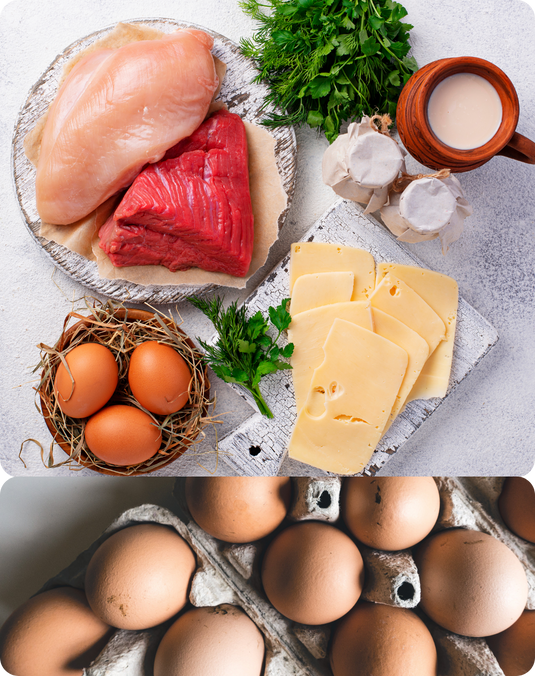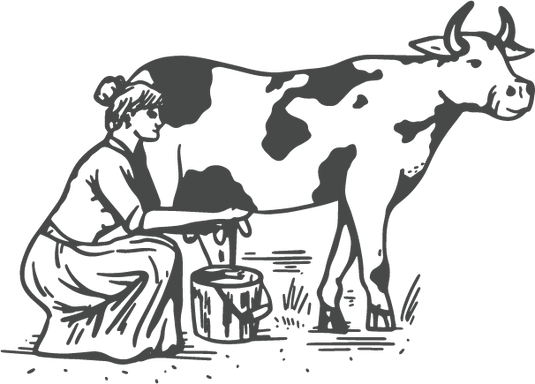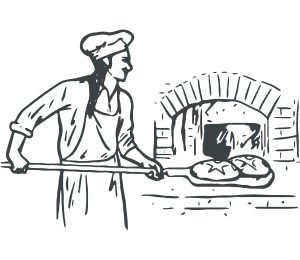

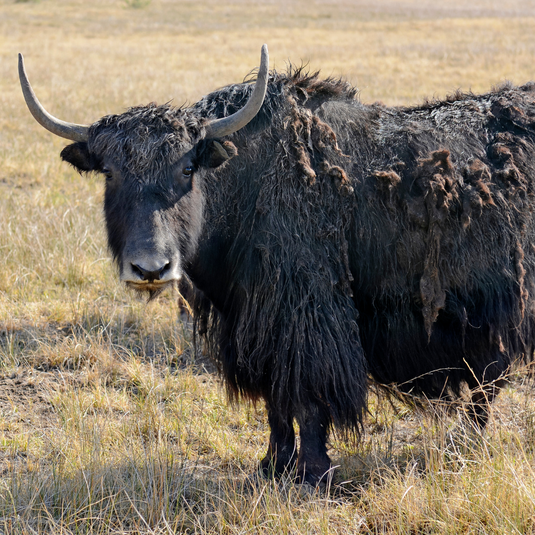
1. 100% Pure-Yak
Many yak products on the market come from hybrid animals, a cross between yak and cattle, bred for faster growth and larger carcass sizes. While this increases efficiency, increases fat content, and lowers costs, it compromises the integrity of true yak meat. In contrast, our farm partner follows strict breeding protocols to preserve the genetic purity of their herd, never introducing cattle genetics. Thus, the yak available at Nourish is 100% pure yak meat ensuring that every cut maintains the authentic characteristics of this ancient species: lean, nutrient-rich, and delicious!
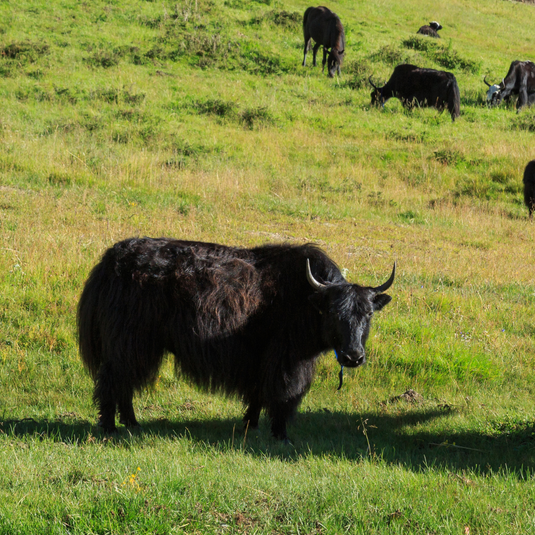
2. 100% Grass-Fed, No Fatty-Acid Manipulation
The yak graze exclusively on lush pastures, following the natural diet of wild ruminants. Unlike conventional practices, we never use grain feed, which introduces several issues:
- Phytoestrogens and pesticides from grain and distiller grains increase your exposure to endocrine-disrupting compounds in the meat
- Grain feeding artificially alters fat composition, creating much fattier meat than what humans historically consumed
- This approach increases harmful Polyunsaturated Fat (PUFA) content while decreasing beneficial saturated fats
Our approach delivers on the Nourish Promise LowPs™ standard—meat naturally low in PUFAs, phytoestrogens, and pesticides, with its fatty acid profile exactly as nature intended.
During winter when pastures are dormant or snow-covered, our farmers feed only chemical-free hay grown on their own farms or sourced from approved locations. This ensures the yak continue receiving clean, nutrient-rich forage year-round, maintaining optimal health even in colder months.
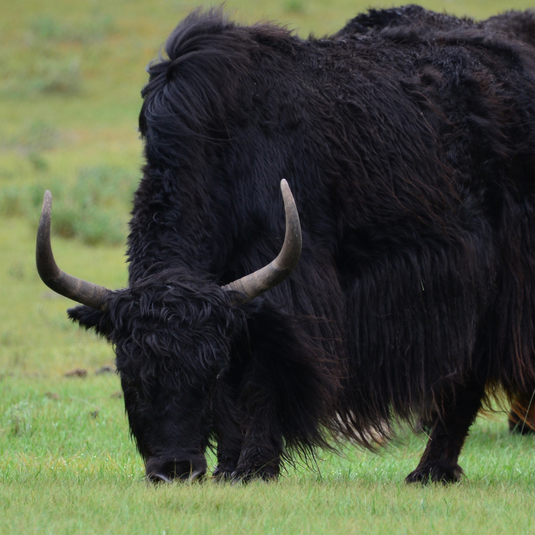
3. Free-Range on Pasture, Not Confined
The yak roam freely on open pastures, enjoying the freedom to express natural behaviors and exercise, abundant sunshine and fresh air, a grounding connection to the earth, and clean living conditions.
This stands in stark contrast to feedlot operations, where confined conditions necessitate numerous interventions including insecticides for fly control, dewormers for parasite management, extensive vaccination programs, routine antibiotics contributing to antibiotic resistance concerns, and rodenticides and other various pest control chemicals.
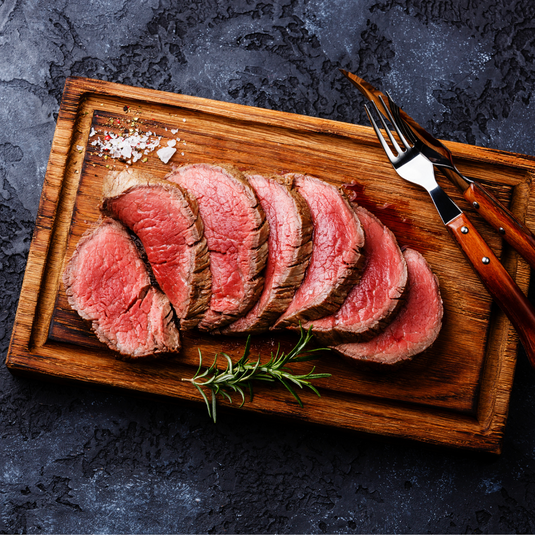
4. Superior Nutrient Profile
100% grass-fed and pasture-raised yak offers exceptional nutrition beyond just more vitamins and minerals compared to feedlot and grain-fed yak—it's also richer in beneficial phytochemicals, naturally occurring plant compounds with numerous health benefits. Terpenoids provide anti-inflammatory, anti-viral, and anti-carcinogenic properties, while polyphenols protect against cancer, cardiovascular disease, and diabetes, supporting immune function and gut health.
The yak thrive on a diverse array of forbs, shrubs, and nutrient-dense wild plants. These plants are often richer in phytochemicals compared to monoculture grasses or grain-based diets of conventionally raised livestock. Each plant contributes unique phytochemicals that accumulate in the yak's tissues and transfer to the meat. These natural plant compounds not only benefit your health but are directly responsible for the superior flavor that distinguishes truly 100% grass-fed yak.
While plant foods contain higher concentrations of phytochemicals, the contribution from pasture-raised meat shouldn't be underestimated. Our phytochemically-rich yak provides beneficial compounds from plant varieties not typically consumed directly by humans.
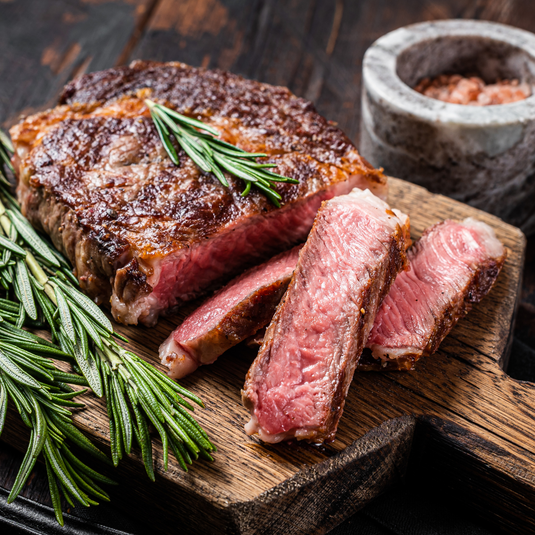
5. Needle-Free Production
The yak thrive without pharmaceutical interventions because they're raised in optimal conditions: fresh pasture, clean air, regular rotation to new grass, and minimal waste exposure. This natural lifestyle eliminates the need for routine antibiotics, vaccines, hormones, and dewormers that industrial agriculture depends on. In the rare case an animal requires medical treatment to keep it alive, it's removed from our Nourish production line.
By prioritizing regenerative practices, our farmers cultivate natural resilience in their herds. Diverse pastures provide natural compounds supporting immune function, regular movement minimizes parasite exposure, and freedom from confinement eliminates health-compromising stress. This approach creates a system where pharmaceutical interventions become unnecessary rather than merely prohibited.
The result is beef free from medication residues, from animals that have lived in genuine health and harmony with their environment—pure, wholesome meat, just as nature intended.
